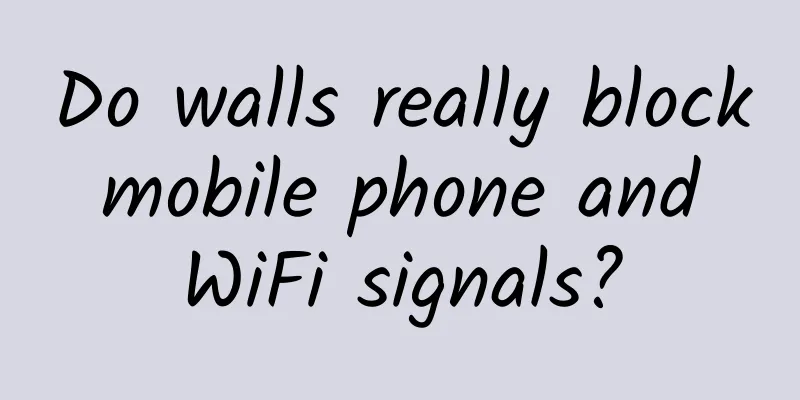This is the real value of the mini program, but it will never replace the App

|
WeChat Mini Programs have been launched for some time. When they were first launched, some people believed that they could replace mobile apps and bring a more refreshing experience to users. The so-called WeChat Mini Program refers to a program that runs on WeChat as a platform. It is mainly composed of HTML code. Thanks to the API provided by WeChat, it has more permissions than ordinary Web applications and can achieve functions similar to Apps. However, can it replace App and make WeChat the overbearing president in charge of everything? It seems not at the moment.
Although WeChat Mini Programs are still booming and the number of Mini Programs is increasing day by day, it seems that no one is willing to drive all apps out of their phones just because of the existence of Mini Programs. At present, mini programs seem to be just lightly used tools and cannot bear the heavy responsibility of the entire application ecosystem. Why is it difficult for mini programs to replace apps at present? Let's talk about this issue today. Disadvantage 1 of Mini Programs: Incomplete Functionality Mini Programs are based on the WeChat platform, which is a major feature of it. This feature brings benefits that ordinary apps do not have - no need to install, easy cross-platform support, etc., but it also limits Mini Programs to WeChat and cannot achieve many functions that apps can easily do.
For example, due to API limitations, it is difficult for mini programs to interact with the system. With apps, you can easily communicate with the system. For example, scenario mode apps can modify the system's volume, vibration, network connection, etc., but mini programs cannot do these common functions. For example, apps can easily push messages to users anytime and anywhere, but mini programs cannot do so due to background limitations. And because the code is not local and the API is limited, the scale of mini programs is extremely limited, so it is impossible to achieve complex functions such as large-scale 3D games.
There is no doubt that compared with ordinary apps, the functions of mini programs are incomplete. If you observe carefully, you will find that mini programs are often only responsible for simple functions such as information presentation. If WeChat wants to compete with apps in terms of functions, it will have to build a stronger bridge between mini programs and the system. Disadvantage 2 of Mini Programs: Scenario Limitations When will we open a mini program? Maybe at home, on the road, at work, or in a restaurant. But there is one situation where people will never use a mini program - when there is no Internet access. The essence of a mini program is a web application, and one of its major selling points is that the code cannot be stored locally (but will be cached locally). The advantage of this is that you don’t need to install the app at all, which saves space. This is also the reason why mini programs are so refreshing. There are pros and cons. The limitation of this setting is that once there is no network, the mini program immediately becomes confused. Except for a small number of functions cached locally, such as interface switching, it can't do anything. Although our country's network construction has made great progress, places without network are still everywhere, such as elevators, underground passages, rural areas and mountains, etc. Although many apps also require the Internet to work, all members of the Mini Programs require the Internet, so you will feel insecure about the entire Mini Program platform. In fact, the functions of some applets can be implemented by relying on local code, such as some calculator applets, some timing applets, etc. They can work even if they are turned on and disconnected from the Internet. But overall, you still wouldn't expect them to replace apps with the same functions. After all, compared to mini-programs that sometimes work and sometimes don't, apps that can work with or without an internet connection are more trustworthy. WeChat mini programs can only entertain you? So will mini programs always be limited to these shortcomings and unable to challenge apps? Not necessarily. In fact, the idea of mini programs is not unique to WeChat. Mini programs are essentially web applications, and many people have tried to replace traditional software programs with web applications. For example, Apple iOS, which is famous for its App quality, has done something like this. Many people don’t know that in the first version of iOS, the system did not support third-party Apps. If you want to implement functions outside the system, you can only use HTML code to write Web applications to achieve it. Unfortunately, Apple failed to stick to this strategy. Just like WeChat mini-programs, iOS web applications can only do so much. The touch-screen revolution sparked by the iPhone still needs the support of apps to gain momentum. However, what iOS failed to do, WebOS and Firefox OS achieved. Many people may be unfamiliar with the two systems, WebOS and Firefox OS, but these two systems have a more radical setting than other systems - applications are developed with HTML and JS, and functions and even hardware calls are implemented through WebAPI. At the same time, the application's HTML and JS codes can also be stored locally, which makes the web applications of these two systems much more applicable than ordinary web applications. So how is the experience of Web applications in these two systems? At least from the perspective of functional implementation, it is very good. Thanks to the establishment of HTML5 and CSS3 specifications, what HTML code can do is enough to challenge traditional apps and is definitely not a toy. However, due to operational, hardware and other reasons, neither WebOS nor Firefox OS was successful in the market, and the replacement of App by Web applications naturally became a pipe dream. Why have web applications failed so far? This requires both personal struggle and the course of history. Apple initially tried to support only web applications in iOS, perhaps because it saw the potential of HTML5, but the timing was wrong. The HTML5 specification was not established in the quarrels among major standard organizations, and the corresponding development was naturally delayed again and again - this is why the course of history did not reach that point. In the era of WebOS and Firefox OS, HTML5 is more mature, but neither of them is a giant and cannot capture a large market share. This is due to personal struggle. WeChat Mini Programs are going to replace Apps. The historical process is closer than ever before, and more efforts are needed in personal struggle. On the one hand, the development depth of mini programs needs to be further deepened. Currently, the mini programs that can call hardware and system functions are still very limited, and the potential of HTML and JS codes has not yet been fully explored. Currently, the APIs provided by mini-program development are often just simple network requests, file access, media playback, information acquisition and other relatively shallow content. What HTML5 and JS can do is not limited to this.
On the other hand, the positioning of mini programs needs to change. The code of mini programs cannot be kept locally for a long time. They are positioned as plug-and-play and disposable products. Although this brings a refreshing experience, it is indeed an important reason for the gap between them and traditional apps. There are gains and losses. It depends on whether Tencent really intends to let the mini program completely replace the App, or just intends to use it as a powerful supplement to the App. Summarize Are WeChat mini programs just for fun? Although their functions are weak, that cannot be said. They are still full of business opportunities and potential. At present, it can be seen as a supplement to traditional apps. Some lightweight functions that do not require a lot of effort do not need to be developed in apps. They can be achieved with mini programs, which reduces development costs and usage thresholds. At the same time, it also has the potential to further replace apps, but it has not yet reached that point. How will WeChat mini-programs evolve in the future? Will web applications take on new forms? Let's wait and see. |
<<: Do you know? How to learn TCP protocol
>>: Recommend several useful Linux e-book readers (Part 1)
Recommend
Practical Tips丨A review of the four creative points in financial management advertising
According to the industry delivery report previou...
How to mirror a website? How to mirror someone else's website?
A few days ago, a friend of mine asked me, what i...
Why is the epidemic in Shenzhen so serious in 2022? Is the factory shut down? Attached is the latest regulations for entering and leaving Shenzhen
Recently, Shenzhen has issued a notice to close a...
Are you addicted to cats and dogs? Beware of the "hidden killers" in your pets
Excerpted from: Inside and Outside the Classroom ...
From radicalism to ending and then chasing: the manned moon landing war between China, the United States and Russia
In the past two years, the most obvious feeling i...
How much does it cost to create a daily necessities mini program in Xiaogan?
How much does it cost to create a daily necessiti...
Broken two ribs is only considered a minor injury?
Since the Tangshan beating incident, the developm...
Why are there two ways to define "new user"?
There are two ways to define " new users &qu...
4 ways to build an Internet brand!
Although the entry threshold for Internet brands ...
Has Sichuan Mustang learned this? Ford's most powerful Mustang will exceed 700 horsepower
Sichuan Mustang sued Ford Mustang for trademark i...
What keeps users in your product?
Introduction I once used a canvas belt for six ye...
A bizarre Luopingsaurus dating back 244 million years has been discovered, and the DNA of dinosaur fans is in great turmoil!
In Jurassic Park, scientists used dinosaur blood ...
Behind those popular cases, there are 4 replicable promotion and marketing routines
2018 has come to an end! This year, rejuvenation ...









